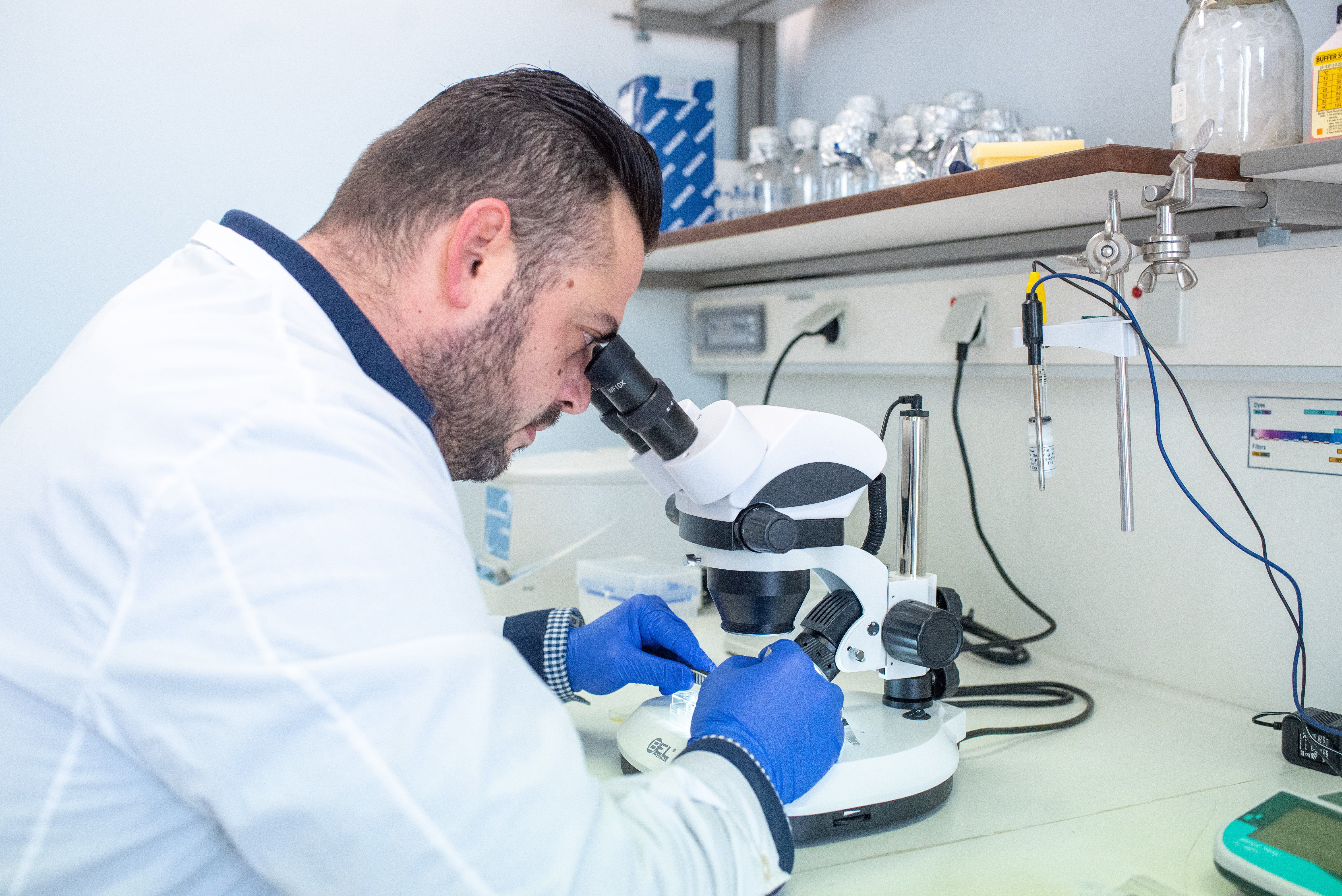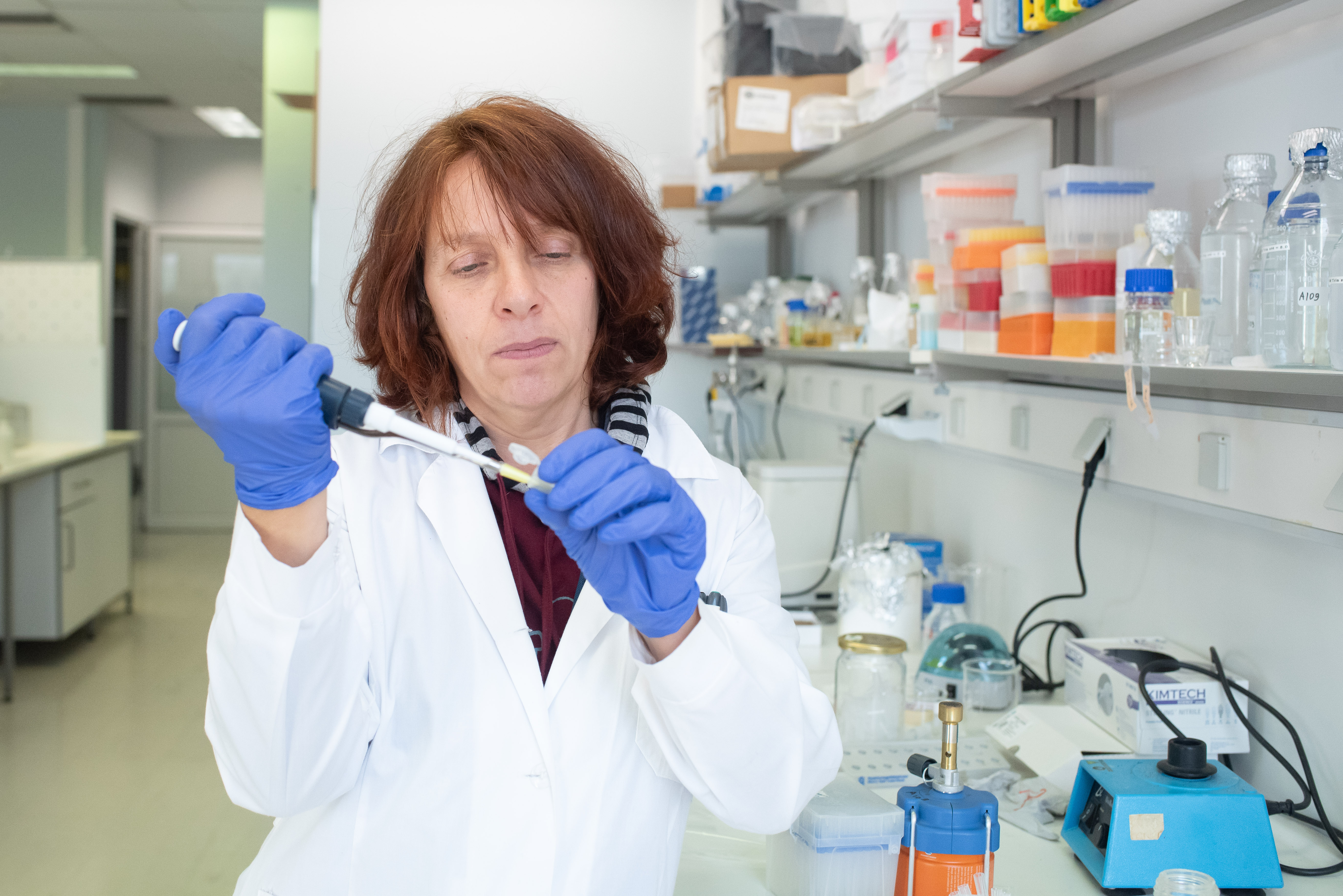Announcements
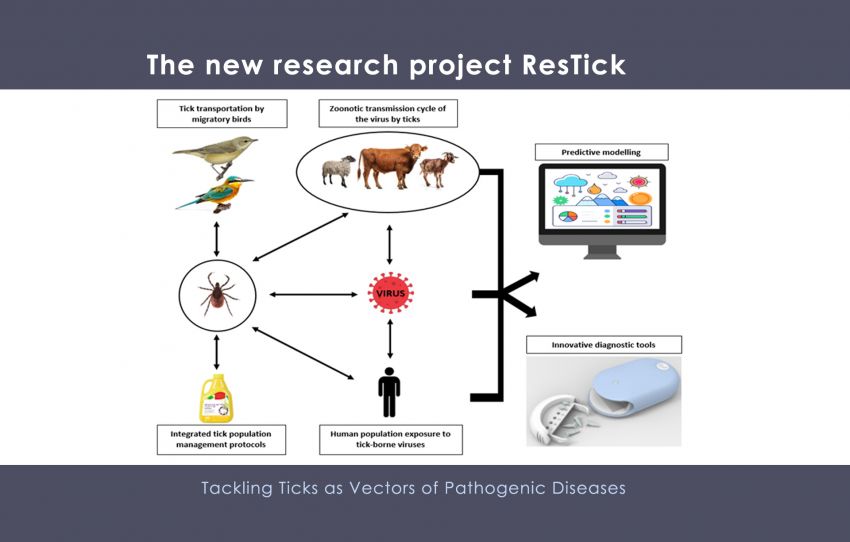
Development of innovative tools for tackling ticks and the diseases they transmit in the context of climate change
The new research project ResTick, aiming to study and address ticks as vectors of pathogens that pose a threat to public health and livestock, will be implemented by the Institute of Molecular Biology and Biotechnology (IMBB) of the Foundation for Research and Technology-Hellas (FORTH), with a budget of 6 million euros, funded by the European Commission.
The project is coordinated by Dr. Michalis Kotsyfakis, Head of the Laboratory of Arthropod Vectors of Disease at IMBB-FORTH, and is carried out with the participation of the Medical School, the Natural History Museum of Crete of the University of Crete, the FORTH spin-off company BIOPIX-T, and several international organizations and universities.
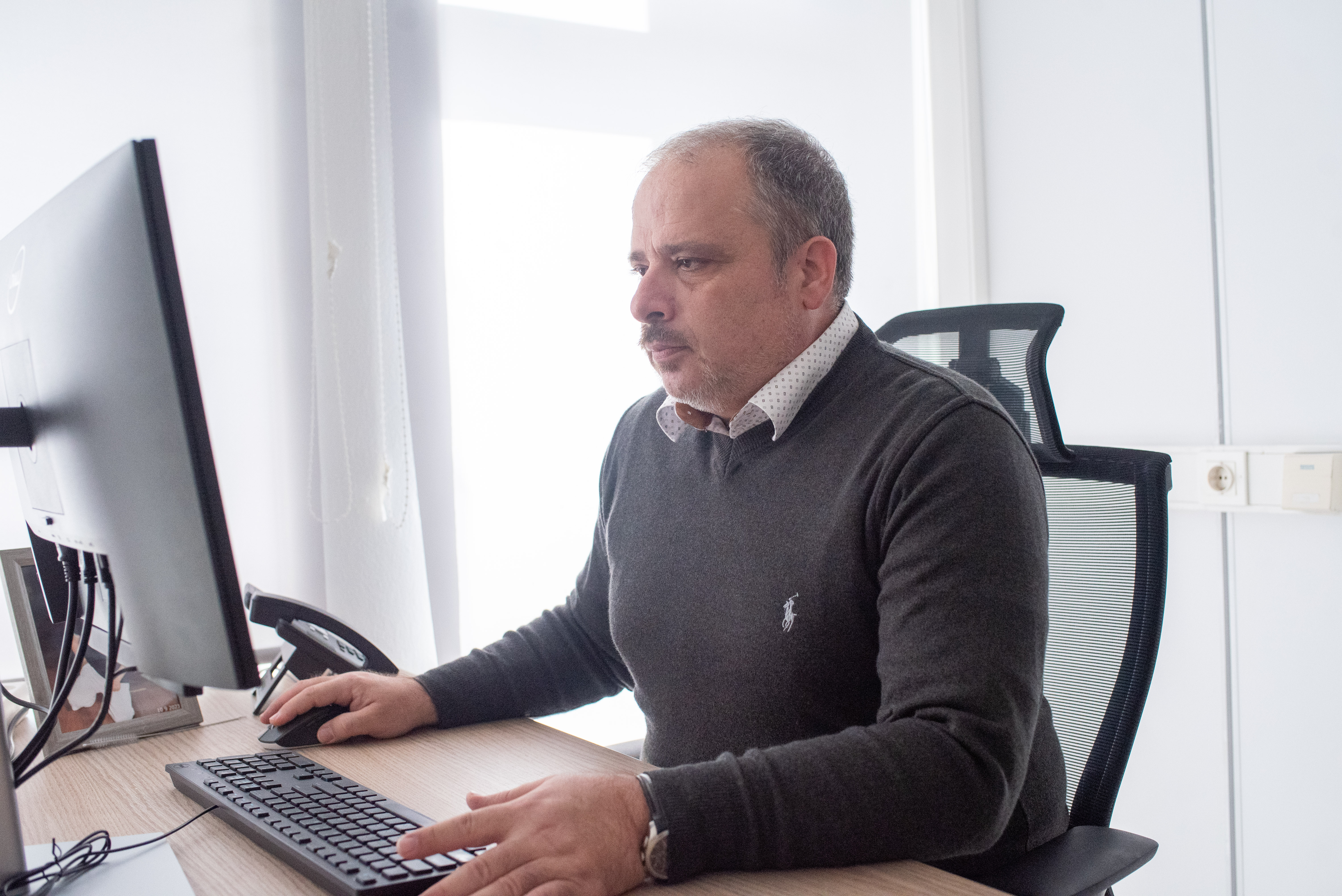
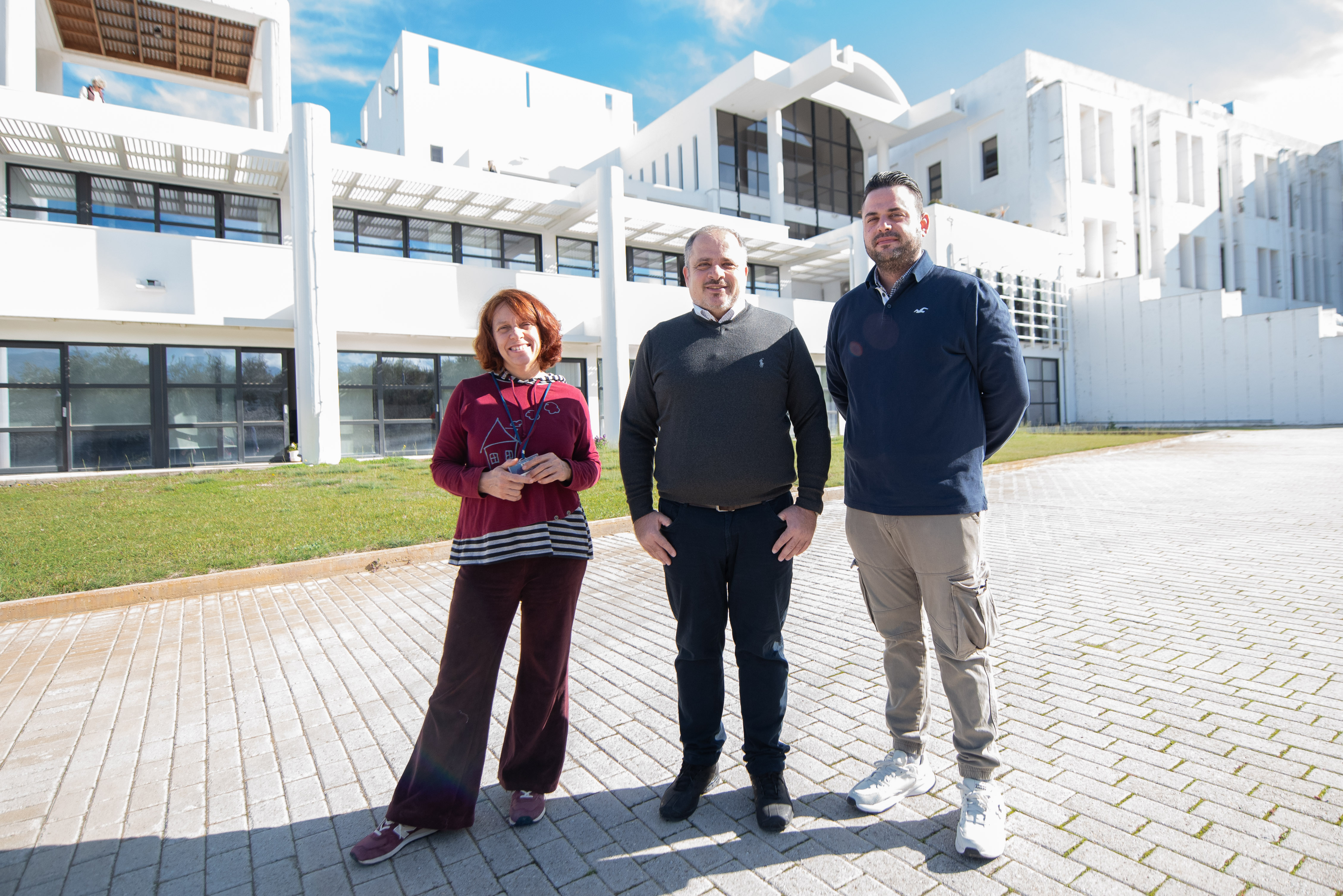
Konstantinos Kostas, Dr. Michalis Kotsyfakis and Dr. Elena Deligianni
by the ResTick project research team.
About the ResTick project
ResTick focuses on studying ticks as vectors of pathogens, with an emphasis on the Crimean-Congo Hemorrhagic Fever virus. Ticks pose a significant threat in regions such as Sub-Saharan Africa and the Mediterranean, as their spread is exacerbated by climate change.
The project aims to develop early warning systems to monitor the spread of tick populations and the pathogens they transmit, as well as molecular diagnostics for their detection and epidemiological monitoring. Emphasis is placed on preventing the spread of invasive tick species, which are often transported by migratory birds and may carry viruses dangerous to both human and animal health.

ResTick adopts a One Health approach, recognizing the interconnectedness of humans, animals, and the environment. Specifically, it utilizes advanced molecular ecology technologies, statistical analysis, and the development of diagnostic tools, combining data from biology, ecology, veterinary medicine, and epidemiology.
Professor Yiannis Vontas, Director of IMBB, highlights the importance of the project:
"ResTick combines scientific excellence with applied research, providing modern molecular tools that will strengthen resilience against the threats posed by climate change."
"The research of FORTH-IMBB within the framework of ResTick, on a very important topic for global public health, affirms the international impact and reach of FORTH," added the President of FORTH and Professor of the Medical School at the University of Crete, Nektarios Tavernarakis.
Contact Information
Dr. Michalis Kotsyfakis
Coordinator of ResTick, Head of the Laboratory of Arthropod Vectors of Disease at IMBB-FORTH
Email: mich_kotsyfakis@imbb.forth.gr | Tel: +30 6970568885

